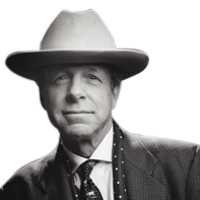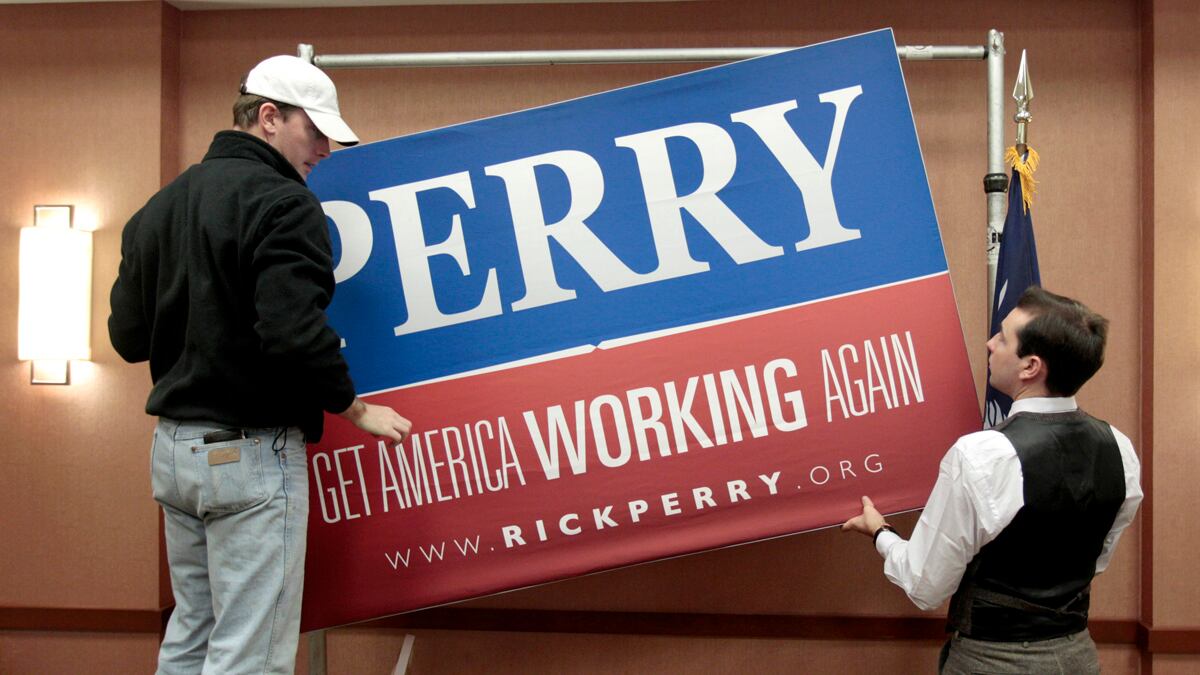Following the rise of the Tea Party and the historic red tide that swept the House in 2010, how could a GOP presidential candidate with a jobs record so appealing in these tough times falter and fail to make it to the all-important first-in-the-South primary? Despite a solid record of conservative achievement at the helm of the economic engine that is Texas, Gov. Rick Perry’s campaign suffered from a lack of preparation, communication, engagement, and recovery—four fatal flaws.
“Oops.” That was the singular utterance few will forget, delivered during the Nov. 9, 2011, debate in Michigan. That moment inarguably led to the final collapse of a campaign that most political observers expected to be a top contender for the 2012 Republican nomination. Though he sat atop national polls at over 31 percent just a month after officially announcing his run, Perry’s “oops” moment was the third in a series of disastrous debate performances. He compounded the already difficult challenge of running for the nation’s highest office by entering the contest late in the calendar, and by then agreeing to participate in a series of debates only weeks later. While the 2012 primary debates have gone rogue and do a disservice to the democratic process, Perry was unprepared—bewildering for an Eagle Scout.

While the candidate has the ultimate responsibility for his performance—and the governor’s performance did improve—Team Perry lost control of the message. The meme was set that candidate Perry could not out-debate President Obama. Campaign communications were necessarily defensive rather than offensive. Rather than talking about the success of Texas’s economic model under Perry—one million jobs created in a low-tax, sensibly regulated environment with actual cuts to the state’s budget—time was wasted defending moot issues: a cancer-preventing vaccine, mandated to ensure insurance coverage but then overturned; and an in-state tuition policy for illegal immigrant students backed overwhelmingly with bipartisan and veto-proof support in the Texas legislature. The snowball rolled: had the campaign been better prepared to respond to what should have been obvious, perceived apostasies to the base, communication could have been more strategic, more effective.
With his Texas swagger, and his open profession of faith in God, country, and conservatism, Perry engendered strong derision, but also strong support in the conservative blogosphere. Team Perry was not effective in engaging that energy. While Perry smartly announced his candidacy at a RedState meeting of online conservative activists (ironically in South Carolina where he announced his withdrawal), and smartly hired the brilliant political filmmaker Lucas Baiano, the campaign did not fully leverage the medium. Perry’s most eloquent spokespeople were not from the campaign, but everyday voters who took to Facebook and Twitter to make the candidate’s case. Had the campaign done more to engage these folks, to properly arm them, to leverage these legions of students and vets, moms and dads, Perry may have gained more traction, more quickly, and more deeply. The avalanche could not be slowed: lack of preparation led to defensive messaging, consuming resources that could have been more engaged in the long play.
Running for president isn’t easy. It shouldn’t be. And every candidate, every team makes mistakes. It’s how they recover from those mistakes that tells the true measure of the campaign. Gov. Perry may or may not have been the right Republican candidate for the times. Though this primary process has been flawed with its American Idol-ized debates, if Perry could not recover from the challenge of easy mistakes, he was probably not yet ready for the larger challenges that loom for the next to dare sit where greater men have failed.






